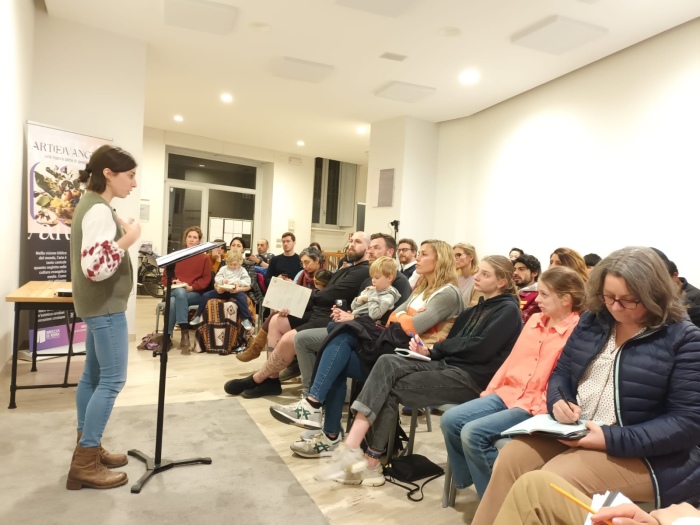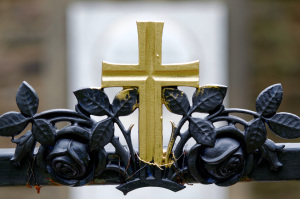Church fights ‘unjust’ tax for not looking ‘religious’ enough
‘We are supposed to pay $54,500 of allegedly accrued taxes only because we are Protestants’

A church in Italy is fighting an “unjust” tax imposed because it doesn’t look “religious” enough, claiming, “We are supposed to pay 50,000€ of allegedly accrued taxes only because we are Protestants.”
Breccia di Roma, an Evangelical church using a former shop as its place of worship, has appealed to the European Court of Human Rights to defend its freedom to worship in its chosen location, according to the legal advocacy group ADF International, which is representing the church.
The Italian Tax Agency has demanded that the church must pay roughly 50,000€, or nearly $55,000, in allegedly accrued taxes, asserting that the interior architecture of the worship space is not sufficiently religious in appearance.
“Why should the Tax Agency decide what a place of worship should look like?” asked Leonardo De Chirico, president of the church association.
“Our small space in the midst of Rome is the place of worship for our community. Every Sunday, we gather for service, our Bible studies are hosted there, and small communities meet in the building. Our worship doesn’t require specific architecture. But we are supposed to pay 50,000€ of allegedly accrued taxes only because we are Protestants,” added De Chirico.
Despite winning in lower courts, the Italian Supreme Court of Cassation sided with the authorities in May 2024, ruling against the church.
The Supreme Court’s decision referred to the absence of “structural interventions consistent with the characteristics related to the exercise of religious activities,” without defining what those changes should be for an Evangelical place of worship.
With no further avenues for justice in Italy, the church’s case has been filed at the European Court of Human Rights.
ADF International argues that Italy is violating Article 9 of the European Convention on Human Rights, which protects the right to open and maintain places of worship.
“The right of the church to meet peacefully for worship in the manner prescribed by its Evangelical faith tradition is clearly protected by Article 9,” stated Lidia Rieder, a legal officer for ADF International.
“While the church has no obligation to justify its appearance to the government, it has explained that the modesty of its architecture is rooted in its religion. Italian authorities have no right to assess the legitimacy of the ways this church’s religious beliefs are manifested in its physical appearance when clearly this is an authentic place of worship.”
Breccia di Roma purchased and restructured the building in 2015, which was previously used as a shop. Upon application, the Ministry of Cultural Heritage, Activities and Tourism authorized the classification as a church “without any internal or external building work,” qualifying it for a tax exemption like all places of worship in Italy.
However, after inspecting the property, the Italian Tax Agency denied the reclassification and initially demanded more than 11,000€, or $12,000, in taxes.
The church filed a lawsuit against the Tax Agency, and the lower court sided with them, noting that the building could not be connected to commercial activity. The Tax Agency appealed, presenting photographs of the Basilica of San Silvestro, the Great Synagogue of Rome and the Great Mosque of Rome, arguing that Breccia di Roma does not look like a “conventional” place of worship.
In response, the Evangelical community asserted that their places of worship tend to be bare and devoid of ornaments, providing examples of other Evangelical churches with similar architecture.
“We don’t make money — we bring people together closer to Christ,” De Chirico stated. “Granted, our building does not match the Great Synagogue, a mosque, or any of the basilicas in Rome. Also, because our resources are limited, we meet in a comparatively unspectacular building. But why would a state punish us for that? Our church is not worse or less spiritual just because our architecture is different.”
The second-instance Tax Court of Lazio ruled the Tax Agency’s appeal unfounded, stating that the authorities failed to consider the property’s owner and the Ministry’s authorization for public worship. Nevertheless, the agency appealed again, and the Supreme Court ruled against the church.
De Chirico expressed concern about the implications: “If we win our case in court, many other Evangelical churches, in addition to the country as a whole, would benefit — religious freedom is an essential good for everyone. What if the Tax Agency decides tomorrow that due to the splendor of a traditional church, the property tax has to be even higher?”





























